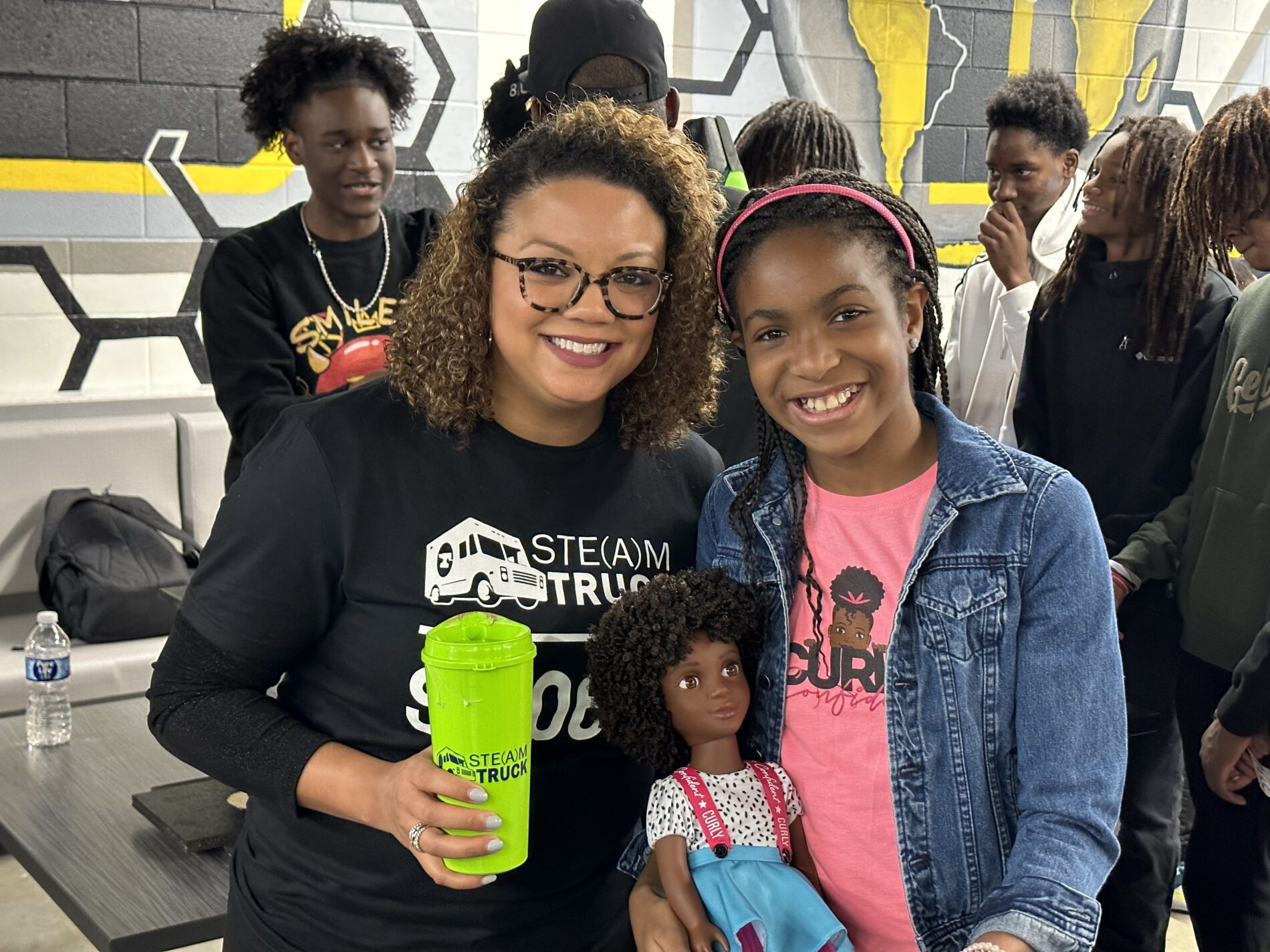Celebrate National Engineering Week!
This week is National Engineering Week, a call to recognize engineers for their contributions to society. redefinED atlanta recently sat down with one of our pandemic innovation fund partners Dr. Marsha Francis, executive director for STE(A)M Truck, a program dedicated to immersing students grades 3-8 in hands-on STE(A)M content through high-tech and low-tech tools, unleashing their creativity to ensure that they can design the lives and future communities of their dreams.
Dr. Marsha Francis describes STE(A)M Truck as “an amazing mobile maker space and innovation lab on wheels.” Through their programs, 3rd-8th-grade students can roll up their sleeves and get their hands dirty. STE(A)M Truck carries high-tech and low-tech tools into the classroom…from 3D printers, drones, virtual reality, and coding to drills, hammers, saws and glue guns.
That creative focus sparks understanding and interest in students who might need access to more intensive STEM programs in their neighborhood or district that engage them in ways that traditional classroom learning does not. It’s an intervention that can change the trajectory of their education and future careers–exactly the type of innovation and opportunity that redefinED atlanta strives to make possible to all K-12 students
As a former elementary teacher and district administrator, Francis believes the rigid “sit and get” style of teaching doesn’t stick, and more to the point it doesn’t allow students to develop the imaginative, creative, collaborative skills that corporations whose bread and butter is innovation are looking for.
Francis earned her Ph.D. at the University of Georgia, studying equity in science education, especially for elementary school students. When shewas teaching, one of her principals told her, “the kids we taught only needed to learn to read and count, and I knew that wasn’t actually true,” said Francis.
At the beginning of the COVID pandemic, redefinED atlanta provided funding that allowed STE(A)M Truck to convert its very hands-on approach to something that could translate into remote learning.
“The funding helped us breathe a little bit, spend some time thinking about what does this mean to provide virtual components and get materials out to kids and families and engage them multiple times to create a similar build,” said Francis. She added that while they couldn’t send everyone saws, hammers and 3D printers, they could find coding and art projects and other ways to get students to make things from home.
That necessity led to a partnership with Clayton County Schools, which is still thriving. Francis said that at first, they partnered with schools providing instruction virtually. Their programming staff led class builds through Zoom and eased the burden on teachers, who were trying to navigate the shift to remote classrooms. But as students returned to school buildings, they pivoted to providing professional development and support for teachers to lead projects with their students with coaching from STE(A)M Truck’s Teacher Engagement team.
Francis said that the teachers, who are frequently as weighed down with regimentation as their students, seemed to get just as much joy out of the opportunity to be creative in the classroom. “It’s not a worksheet, it’s not a lecture, it’s not a video, it’s a thinking, a doing, a talking, percolating, and that’s really really rich,” said Francis.
“That early support and that vote of confidence and that seed money from redefineED atlanta really helped us stretch and continue to be relevant and provide this just-in-time service to kids who were home but really deserved an opportunity to learn like this,” said Francis.
Francis said the pandemic highlighted the need to be innovative and nimble, but the need remains after schools re-opened. Changing technology means that the relatively slow pace of curriculum development and education policy changes may need to catch up with the demands of the job market.
Enter companies like SNIPES and Nike, that are willing to put their money where their sneakers are to develop the imaginative design skills they are looking for.
Francis said she got a call from SNIPES in September for a program that launched in October. “They wanted us to create an eight-week program for high schoolers to think about universal design, sneaker design and creating innovative sneakers for differently abled people,” said Francis.
“They said, high schoolers are really smart. We want to see what they would dream up if we gave them all these resources. And that’s STE(A)M Truck in a nutshell,” laughed Francis.
“I’m a person that when I get a blessing, it won’t be squandered,” Francis added.
Students were divided into teams and given roles equivalent to real-world project management jobs. They did everything from considering who their target audience was for a design, to sawing a sneaker in half to see how it was made and making multiple prototypes of inclusive footwear.
Students in the program responded with exactly the innovation the sponsors hoped for. One student designed a sneaker that would alert a deaf and blind wearer to a nearby object through electronic pressure sensors near the toe of the shoe.
“I’m optimistic about all that we have on our horizon. I love the commitment that our corporate partners are making to students. And we’re just excited to continue this work,” said Francis.
STEAM programs are important in exposing students in under-resourced communities to unique opportunities that enrich their education journey. redefinED atlanta will continue supporting STE(A)M Truck in its vision to ensure K-12 youth throughout Atlanta have equitable access to relevant, transformative and inspiring learning experiences that open doors for future life opportunities. To learn more about STE(A)M Truck and its programs, visit www.steamtruck.org.

